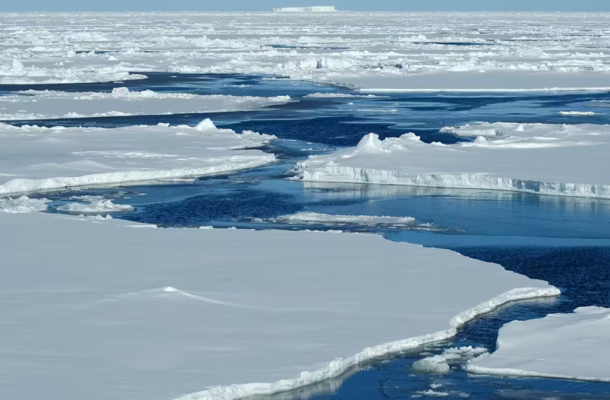Latest Story
-
Uncategorised
A “Business” approach to the business of Social Inclusion
mbagshaw | April 18, 2008By Dr Mark Bagshaw
Social Inclusion has emerged at the top of Australia's political agenda, and the business sector in "making complex things happen" has much to offer.
After such a long, dark period in Australia's social development history, it feels so good to feel the warmth of the social inclusion agenda. Michael Chaney, until recently the President of the Business Council of Australia, couldn't have said it better in his final address at the BCA Annual Dinner last year when he said that, after a significant period of change that had delivered enormous benefits for the business sector and those who benefit most from its success personally, it is now time that our wealthy nation applied its capacity to make things happen to sorting out some of the nation's most pressing social challenges.
And to me it doesn't matter what the driving force for this shift in thinking is-the economic imperative of the skills shortage, pressure from those who have been excluded, or a genuine recognition across the community there are real solutions to even our most pressing social problems-the fact is that for the first time in a long time our nation is poised for a new and exciting period of genuine social reform.
-
Uncategorised
Phys Ed in primary schools
jean mcphee | April 17, 2008In the early 1970’s my training was at Melbourne University Diploma of Phys Ed , teaching based course in which we learned how to deliver broad based, inclusive ,and comprehensive programs which were designed to deliver a range of enjoyable Physical activities to students.
I was Primary school based and we covered all kinds of activities and sports in seasonal blocks ,ball skills major games (cricket netball hockey etc) ,minor fun games,simple gymnastics ,athletics, dance and music & swimming and life saving . Now there are many more activities which could be included, like yoga or fitness programs
Every pupil was involved in 20 -30 minutes of activity every day, as well as sport once a week ,and it was designed to cater for all shapes and sizes and abilities in small groups .
-
Uncategorised
Spray cans to be removed from public display
Garth | April 17, 2008GRAFFITI Perhaps this subject has been covered by someone else. It is important. The commonest type of graffiti are performed by persons using spray cans. One assumes that these persons have not paid for their spray cans, but have stolen them. Such is the nature of graffiti writers, one would assume. My submission is that […]
-
Uncategorised
Government / university partnerships
Kerry Cox | April 17, 2008
Education and training in their many forms, appropriately contextualised, will be the great enablers to facilitate the generation of more inclusive, more prosperous, and more sustainable communities throughout the world.
Within the Australian context, policy, strategic and funding positions need to be established to allow universities to develop course profiles which meet the needs of individuals, groups, businesses and industries in the communities each university was established to serve. The discussion gathering momentum since the election of the Rudd Government of establishing a tertiary advisory group positioned between each university and the Federal Government, is likely to be a more effective way to encourage universities to develop and adjust appropriate profiles of courses to meet the needs of their communities.
With respect to research, far greater emphasis needs to be given to research at exacting international standards which, in addition, is likely to be of benefit to the communities, in real time, that each university was established to serve.
-
Uncategorised
A national information policy?
Nicholas Gruen | April 16, 2008
Sometimes a little leadership is all it takes to nudge market forces along.
150 years after Adam Smith first expounded the miraculous way the market's ‘invisible hand' transforms private self interest into social prosperity, some economists argued that we could achieve the same result with sufficiently sophisticated government planning.
Enter the Austrian émigré Friedrich Hayek . . . who showed that markets achieve their efficiency by utilising information which is distributed throughout the economy and so often unavailable to government.
Traders and entrepreneurs become aware of new information constantly. In seeking only his own advantage a trader who is hoarding grain as a result of some impending local crop failure, contributes to the common good because his hoarding drives up grain prices and this broadcasts the increasing scarcity of grain to all in the market.
Market participants need not know why grain has become scarcer, only that it now costs more, to build that information into their own decisions. Hayek showed how deeply dysfunctional an economy robbed of this intelligence would be, an insight ultimately vindicated by the fall of the Berlin Wall.
-
New dogs, old tricks
editor | April 15, 2008
By Greg Eatock
Little children ARE sacred, which is why the NT intervention has to stop.
The Howard government’s decision to create a blanket punitive approach to instances of child abuse in the Top End has been a disaster for Aboriginal communities throughout the Northern Territory.
Garnishing welfare payments, and returning to a system of ration cards has forced a tremendous upheaval and heartache. Not only is it degrading and humiliating for many Aboriginal people to be using the cards rather than controlling their own money, it is also forcing thousands to flee remote communities for urban settings, which were already over crowded and bereft of basic services.
-
Uncategorised
Understanding Asia’s Daily Concerns
Warren Reed | April 7, 2008Would an 'Asia Daily' news bulletin help Australia to better understand its closest neighbours?
-
Uncategorised
Civilised society
John V Ryan | April 6, 2008Australia should teach its people the elements of a civilised society. I mean, the rule of law, periodic elections, government by majority subject to the protection of the rights of minorities, freedom of expression, freedom of religion subject to respect for the rights of others to practise their own religion or lack of it, submission […]
-
Uncategorised
Water wise, Desalination Wise
lindonr | April 5, 2008
Desalination plants can provide a long term solution to Australia's water supply issues.
What is fresh water? Don't be too quick to say it's a precious natural resource. To me fresh water is energy. There is heaps of water on earth it may just not be where or in the form that you want it at the time that you want it. You will get fresh water anywhere you want it in any quantity if you are willing to provide the energy and infrastructure to get it there. To me energy and infrastructure are fairly similar too as infrastructure is produced at its source by energy.
When we look at conventional forms of water supply consisting of dams and piping systems we don't see the huge energy costs involved or the massive environmental damage caused by these schemes. The biomass destroyed in the flooding on the valleys upstream of the dams alone adds millions of tonnes of green house gases to the atmosphere.
Building the associated dams and infrastructure utilise massive resources in the construction and manufacture of the component parts. Once operational we then forget about the massive pumping that has to be undertaken to get the water to the point of supply at the pressure we want to use it at. In many cases the electrical usage of present systems rival that of desalination systems. For example Sydney Water has always been one of the biggest users of electricity in the state of NSW.
-
Uncategorised
Populate and Perish
lindonr | April 5, 2008Sorry, I can't see much correlation between increasing our population and sustainability. Why do we need to endlessly increase our population? This idea has been the dominant paradigm in this country for some time now which appears to me to be the main reason it continues to exist. I believe logic and good sense should prevail to kill this sacred cow of an idea. There are plenty of prosperous countries in the world not increasing their populations so why do we continue to do so? The Aboriginal people of this country achieved equilibrium and balance with the environment and became care takers of this land over many thousands of years. Why can't we return to this belief that we are here to take care of this country and not exploit it?
-
Uncategorised
Short memories, deep pockets: a bad combination
Douglascomms | April 2, 2008Why does this whole credit crunch look so damn familiar?
-
Uncategorised
Don’t forget Earth Hour!
Douglascomms | March 28, 2008Surely we should be thinking about our power consumption more than once per year.














